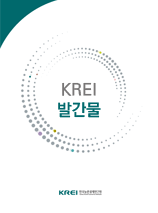
- The Status of AI Outbreak and Response and the Direction of Preventive Measures
-

-
○ Highly Pathogenic Avian Influenza (HPAI) and Low Pathogenic Avian Influenza (LPAI) have broken out in 37 countries all over the world since 2012 and have recently been detected in four countries as of January 2014.
- Those who are infected with or died of AI that broke out since November 2003 have been reported in 15 countries generally in the Asian region.
○ HPAI has been detected five times in Korea, and experts presume that the influenza virus could enter the country by migratory birds.
○ According to the urgent AI Standard Operating Procedure (SOP), which was revised to prevent the spread of HPAI all over the nation and eradicate the virus at an early stage, the authorities issued a nationwide “temporary standstill” order twice to Jeollanam-do and Jeollabuk-do Provinces, Gwangju Metropolitan City (for 48 hours), Gyeonggi-do, Chungcheongnam-do and Chungcheongbuk-do Provinces, Daejeon Metropolitan City and Sejong City (for 12 hours), for the first time since the system was introduced.
○ Since 2004, AI broke out five times in Japan, and experts have identified wild birds as one of the causes of the infection in all of five cases and sought for countermeasures against the spread of AI through wild birds.
○ The Japanese government’s preventive measures against AI are more specific and detailed than the SOP of the Korean government.
- In Japan, the authorities use the detailed feeding management checklist to probe the current status, and choose sampling methods and designate farms that should be under control, in a more scientific approach.
- The Korean SOP suggests guidelines only for the occasion in which wild birds are officially identified as the cause of the AI infection. On the contrary, the Japanese measures provide thorough preventive guidelines and even anti-virus countermeasures against the AI infection from wild birds even for farms.
○ In order to improve the current preventive policy against AI infection,
- firstly, complementary plans for the sustainable eco-friendly livestock policy are needed to resolve fundamental problems of animal diseases;
- secondly, responding guidelines should be more specific, and interdepartmental cooperative relationships and information network should be established;
- finally, a joint research network among Northeast Asian countries including Korea, China, Taiwan and Japan should be established to reinforce the quarantine system at the borders and seek for preventive measures against the transmission of the virus through wild birds. -
목차
요약문
○ Highly Pathogenic Avian Influenza (HPAI) and Low Pathogenic Avian Influenza (LPAI) have broken out in 37 countries all over the world since 2012 and have recently been detected in four countries as of January 2014.
- Those who are infected with or died of AI that broke out since November 2003 have been reported in 15 countries generally in the Asian region.
○ HPAI has been detected five times in Korea, and experts presume that the influenza virus could enter the country by migratory birds.
○ According to the urgent AI Standard Operating Procedure (SOP), which was revised to prevent the spread of HPAI all over the nation and eradicate the virus at an early stage, the authorities issued a nationwide “temporary standstill” order twice to Jeollanam-do and Jeollabuk-do Provinces, Gwangju Metropolitan City (for 48 hours), Gyeonggi-do, Chungcheongnam-do and Chungcheongbuk-do Provinces, Daejeon Metropolitan City and Sejong City (for 12 hours), for the first time since the system was introduced.
○ Since 2004, AI broke out five times in Japan, and experts have identified wild birds as one of the causes of the infection in all of five cases and sought for countermeasures against the spread of AI through wild birds.
○ The Japanese government’s preventive measures against AI are more specific and detailed than the SOP of the Korean government.
- In Japan, the authorities use the detailed feeding management checklist to probe the current status, and choose sampling methods and designate farms that should be under control, in a more scientific approach.
- The Korean SOP suggests guidelines only for the occasion in which wild birds are officially identified as the cause of the AI infection. On the contrary, the Japanese measures provide thorough preventive guidelines and even anti-virus countermeasures against the AI infection from wild birds even for farms.
○ In order to improve the current preventive policy against AI infection,
- firstly, complementary plans for the sustainable eco-friendly livestock policy are needed to resolve fundamental problems of animal diseases;
- secondly, responding guidelines should be more specific, and interdepartmental cooperative relationships and information network should be established;
- finally, a joint research network among Northeast Asian countries including Korea, China, Taiwan and Japan should be established to reinforce the quarantine system at the borders and seek for preventive measures against the transmission of the virus through wild birds.저자정보
저자에게 문의
구매안내
KREI의 출판물은 판매 대행사 (정부간행물판매센터)와 아래 서점에서 구입 하실 수 있습니다.
판매대행사
- (주)정부간행물판매센터http://www.gpcbooks.co.kr사이트 바로가기
- 서울특별시 중구태평로 1가 25번지
- TEL 02) 394-0337, 734-6818
- FAX 02) 394-0339
판매서점
판매서점 교보문고 http://www.kyobobook.co.kr/ 영풍문고 http://www.ypbooks.co.kr/ 알라딘 http://www.aladin.co.kr/ 활용도 정보
활용도 정보 상세정보 조회 좋아요 다운로드 스크랩 SNS공유 4294 0 8 0 0 -
- Suggestions to Promote the Hometown Love Donation System
- Gouk, Seungyong
- 2022.11.25
- KREI 이슈리포트
-
- Ten Years of Korea-U.S. FTA: focusing on agri-food trade
- Kim, Kyungphil
- 2022.06.09
- KREI 이슈리포트
-
- Impacts of Ukraine-Russia Conflict on Global Grain Prices
- Kim, Jongjin
- 2022.03.31
- KREI 이슈리포트
-
- The Impacts of the COVID-19 on the Korean Agricultural Market
- Seo, Hong-Seok
- 2020.06.05
- KREI 이슈리포트
-
- 10 Agricultural Policy Issues of Korea in 2019
- Jeong, Minkook
- 2019.01.29
- KREI 이슈리포트
-
- State of Korean and Overseas Markets for Environment-Friendly Agricultural Products and Challenges 2018
- Jeong, Hakkyun; Sung, Jaehoon; Lee, Hyeonjeong
- 2018.09.12
- KREI 이슈리포트
-
- Measures to Establish the Water-Energy-Food Nexus for Agricultural Resource Management
- Sung, Jaehoon; Cho, Wonju; Lee, Hyeonjeong
- 2018.09.05
- KREI 이슈리포트
-
- Changes in the Trade of Agricultural and Livestock Products and Implications after Seven Years from the Enforcement of the Korea-EU FTA
- Song, Woojin; Lee, Hyunkeun; Myeong, Suhwan; Yoo, Juyoung
- 2018.06.29
- KREI 이슈리포트
-
- 10 Agricultural Policy Issues of Korea in 2018
- Kim, Byoungryul
- 2018.01.22
- KREI 이슈리포트
-
- Income Changes by Type of Farm Household and Implications
- Woo, Byungjoon
- 2017.11.30
- KREI 이슈리포트
-
- Income Changes by Type of Farm Household and Implications
- Woo, Byungjoon
- 2017.11.30
- KREI 이슈리포트
-
- 10 Agricultural Policy Issues of Korea in 2019
- Jeong, Minkook
- 2019.01.29
- KREI 이슈리포트
-
- 10 Agricultural Policy Issues of Korea in 2018
- Kim, Byoungryul
- 2018.01.22
- KREI 이슈리포트
-
- Job Creation Potential for the Youth and Challenges in the Agricultural Industry
- Ma, Sangjin
- 2017.01.01
- KREI 이슈리포트
-
- Implementation Plan and Implications of International Development Cooperation Projects for Agriculture in 2017
- Heo, Jang
- 2017.04.28
- KREI 이슈리포트
-
- 2016 Production Status and Market Prospect of Eco-Friendly Agricultural Products at Home and Abroad
- Jeong, Hakkyun; Lee, Hyejin; Kim, Changgil
- 2016.11.30
- KREI 이슈리포트
-
- The Impacts of the COVID-19 on the Korean Agricultural Market
- Seo, Hong-Seok
- 2020.06.05
- KREI 이슈리포트
-
- Global Spread of Saemaul Undong for Rural Development in Developing Countries
- Heo, Jang; Lee, Yoonjung
- 2016.11.30
- KREI 이슈리포트
-
- Goals and Strategies to Reduce Greenhouse Gas Emissions in the Agriculture Sector
- Jeong, Hakkyun; Kim, Changgil
- 2015.11.03
- KREI 이슈리포트
-
- 70 Years' Achievements and New Challenges of Korean Agriculture and Rural Communities
- Song, Miryung; Moon, Hanpil; Kim, Meebok; Seong, Jooin; Lim, Jieun
- 2015.09.15
- KREI 이슈리포트
의견남기기


